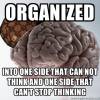Announcements: Cutting Costs (2024) » January 2024 Copyfraud Attack » Finding Universes to Join (and making yours more visible!) » Guide To Universes On RPG » Member Shoutout Thread » Starter Locations & Prompts for Newcomers » RPG Chat — the official app » Frequently Asked Questions » Suggestions & Requests: THE MASTER THREAD »
Latest Discussions: Adapa Adapa's for adapa » To the Rich Men North of Richmond » Shake Senora » Good Morning RPG! » Ramblings of a Madman: American History Unkempt » Site Revitalization » Map Making Resources » Lost Poetry » Wishes » Ring of Invisibility » Seeking Roleplayer for Rumple/Mr. Gold from Once Upon a Time » Some political parody for these trying times » What dinosaur are you? » So, I have an Etsy » Train Poetry I » Joker » D&D Alignment Chart: How To Get A Theorem Named After You » Dungeon23 : Creative Challenge » Returning User - Is it dead? » Twelve Days of Christmas »
Players Wanted: Long-term fantasy roleplay partners wanted » Serious Anime Crossover Roleplay (semi-literate) » Looking for a long term partner! » JoJo or Mha roleplay » Seeking long-term rp partners for MxM » [MxF] Ruining Beauty / Beauty x Bastard » Minecraft Rp Help Wanted » CALL FOR WITNESSES: The Public v Zosimos » Social Immortal: A Vampire Only Soiree [The Multiverse] » XENOMORPH EDM TOUR Feat. Synthe Gridd: Get Your Tickets! » Aishna: Tower of Desire » Looking for fellow RPGers/Characters » looking for a RP partner (ABO/BL) » Looking for a long term roleplay partner » Explore the World of Boruto with Our Roleplaying Group on FB » More Jedi, Sith, and Imperials needed! » Role-player's Wanted » OSR Armchair Warrior looking for Kin » Friday the 13th Fun, Anyone? » Writers Wanted! »

BBClock's Guide to Explaining Magic
a topic in Game Design Workshop, a part of the RPG forum.
Moderators: Ambassadors, Scholars
Introducing a Simple Guide to Magic by yours truly, Professor Towers. In this guide, I'll detail the ways I find solve most of the problems we have with magic in Roleplay in general, as well as explain why they are logically sound, and should be endorsed. It is still your call, player, to as to whether or not you endorse it yourself.
We'll start with the first big inconsistency in magic.
Magic is Drawn from an Alternate Plane
Anyone can cast magic. Even the most non-intelligent lifeforms can utilize some magic. That being said, anyone can become a Wizard. The main thing that separates the common folk and a good Wizard however, is their knowledge. The more knowledge of the magical realm that one has, the better they can utilize it to create powerful spells. Focus is just as important, good mental focus can amplify a spell to give a better effect. Both of these must be honed over time. It takes great practice to even cast a simple Fireball, let alone Tempests and whatsits. This is why no one can simply be a good Wizard. Now, onward with the guide!
Mana Determines Stamina in Wielding and Utilizing Magic
Remember Mana? A fun stat in almost every RPG that determines how many spells the Wizard can cast, right? Well, the principle holds here, but in a different light. Mana is the stamina in channeling magic from the alternate plane to power spells. If you're out of Mana, then you're out of energy needed to channel magic sufficiently well, and there's a supremely high chance your spell of awesome will fizzle and accomplish nothing. Don't fret, just rest for a while and regain your energy. Once again, increasing your Mana cannot be done easily. It takes lots of practicing to increase your stamina. Knowledge will not be useful if you tire yourself after a single spell, hence why Mana is so vital as a Wizard. Now, for the next part.
Knowledge Determines the Power, Effects, and Duration of Spells
We all know that knowledge is important for channeling magic well, but it has an even more important use. The level and strength of spells is directly affected by how much magic you can tap into, up to a limit only set by your understanding and Mana. For Wizards, it really holds true that "Knowledge is Power". Knowledge can only be gained through the seeking out of wisdom. Spell Tomes, Magic Books, and other Wizards are all valuable sources of knowledge, and anyone interested in magic should seek them out. Lastly, one more part.
Classes of Magic
So we've established that anyone can casts spells with practice. What are some of the spell types then? Well, all magic can be, at core, traced to one of four overarching types. We'll look at each of these.
Destruction: The most fun magic comes in the School of Destruction. As the name implies, these spells are almost all focused on using magic to immensely damage those around you, or to cause, well, Destruction. It even boasts some magic that damages and stunts your opponent in various ways.
Summoning: The School of Summoning Magic is one of the most versatile schools. Why? It allows for a lot of utility use. You can conjure and alter almost anything within reason and skill.
Light: Light Magic is the most useful supporting school of magic, and it deals mostly with spells that can buff up weak allies, as well as heal pain and suffering caused by curses and battle. Resurrection is possible with enough skill.
Dark: Dark Magic is a school of corrupted arts, looked down upon and feared. Spells here specialize in decay, death, suffering, and pain as their main focus. With their many uses, they can potentially destroy worlds, alongside people and the environment. Many Wizards disdain it's use.
Whatever type of magic you decide to use, it'll require a lot of practice to master any spell from any school. Now, for the next and final part.
Finished!
That's that! Simple right? Magic can be simplified and not be a complete mystery. Many workarounds that are logical and reasonable exist, and if we don't try and pull stunts that make bad impressions, magic can be just as legitimate a tool as a blade, sword, or fist. So everyone, go out there and show people you know your magic better then they think you do! Any questions on any of this, please ask, and I'll attempt to answer them to a satisfying degree.
Happy Spellcasting!
"Now why not repay a favor and feed my hungry animals for me?"


Tip jar: the author of this post has received 0.00 INK in return for their work.
-

ClockworkTowers - Member for 15 years
-















DON'T
Although I think attempts in a story to explain magic are fine and can be quite engaging, they should always be colored by frustration and suggest an underlying mystery. Without this, you don't have magic, you have physics. Take magic in Discworld as an example. Various characters explain it at various times and yet as the reader you are always left even more puzzled at the end of each explanation. Of course, magic can have patterns and rules, but one must be cautious in defining them. The reader will be far less inclined to believe in magic when magic is thoroughly explained and understood. It's analagous to people getting spooked in the dark. Our imagination makes up and believes in pernicious forces in the shadows because we DO NOT KNOW what lurks within. When light arrives, however, it banishes such phantasms because we then know what is there and need no imagination to fill the gaps. A good magic system attempts to cultivate such phantasms, not expunge them.
Tip jar: the author of this post has received 0.00 INK in return for their work.
-

Scumbag_Brain - Member for 13 years
-








The 'science' behind it is not important unless you intend to make it a plot-point (granted you use an overarching story as a main drive) or everyone in your game is overly enthusiastic about your world-building. I had games with an elaborate system that was appreciated because the world was extensive and in-depth. I also had games where it was like "Okay guys make up a number of spells your character can use and let's get started, go go go!" and nobody even cared about the mechanics behind them; just the balance between characters. You adapt your explanation (or lack thereof) to the crowd you're trying to appeal to.
Same with the 'feeling' behind it; maybe you don't want a mystery-feeling behind it. Maybe you want it to feel like physics. It's a matter of what game you're running. Maybe you want it to have this forbidden dark art feel, in which case you'll give it side-effects or require sacrifice, focus more on diseases than laserbeams, etc. Maybe you want it to be accepted in every day life, like Harry Potter, give everyone and their dog a wand and have a ton of household-related spells. And you know what; this gives worlds a more unique and different feel because what magic is becomes attuned to what the worlds are.
Magic is whatever we want it to be. Catch-alls for it are an incredibly stupid idea, because in different games the concept of magic may have different purposes.
Where women glow and men plunder?
Can't you hear, can't you hear the thunder?
You better run, you better take cover.
Tip jar: the author of this post has received 0.00 INK in return for their work.
-

Kestrel - Member for 16 years
-








Tip jar: the author of this post has received 0.00 INK in return for their work.
- Jag
- Member for 15 years
-













Scumbag's comments fall into the same trap -- it isn't at all intrinsically harmful to explain magic. D&D, for example, is a very functional system and one which certainly does support RP, but its magic rules are defined to the point of numerical data (not data characters know, of course, but it certainly could be thought of as cutting the mystique). There's also accounting for preference. Some readers are going to roll their eyes at magic which doesn't rest on established rules. Others eat it up.
Now that I'm done picking, I will say that I like this system. I often utilize something along these lines often when I'm working with non-modern, original, fantasy worlds. For anyone looking for a developed magic system in a plot which doesn't rely on limited or imbued magic, this could be quite useful.
Tip jar: the author of this post has received 0.00 INK in return for their work.
-

Marionette - Member for 15 years
-










Tip jar: the author of this post has received 0.00 INK in return for their work.
- Jag
- Member for 15 years
-













Tip jar: the author of this post has received 0.00 INK in return for their work.
-

Kestrel - Member for 16 years
-








Tip jar: the author of this post has received 0.00 INK in return for their work.
-

Marionette - Member for 15 years
-










people don't quite understand how magic should work
I would posit that this is a fundamentally incorrect statement. There is no single 'right' way for magic to work - people draw inspiration from a wide array of sources, be it books or anime or movies or whatever else. As such, there is an endless number of magical systems that are perfectly acceptable. And as people are generally a fan of the works their magic system(s) are drawn from, it can be reasonably assumed that, actually, they do know how that particular type of magic works.
As such, the suggestion that a single system be widely endorsed or implemented is wrong. It limits people's creativity and removes any sense of uniqueness.
Not that I am saying the system presented isn't valid, it seems sound and we are all free to choose our own systems, so I have nothing against the presentation of a particular system. But I don't think it should be suggested as a 'fix' for a problem that doesn't exist.
and they oftentimes argue over it
Now, this is the real problem. It doesn't, however, have anything to do with whatever magic system a person uses. It is purely a player-OOC problem that tends to mostly present itself in multiversal roleplays. The very nature of a multiversal roleplay such as Roleplay Gateway's own Multiverse is designed to allow as many kinds of magic as there are users or characters. Each magic system and the way it works is correct, as multiversal roleplays 'absorb' the universes of all characters' canons.
The issue arises when people think that one system overrules another. This isn't the case - all systems are equal in validity. It is the job of the players to work together and reach an agreement on how to deal with a particular situation when it arises. After all, a roleplay should be collaborative.
And that seems to be the problem - people forget that roleplay is collaborative story telling. It is easy to do, especially when writing conflict, but if collaboration is constant, the problem of people arguing about magic systems will be rendered moot.
Tiko says: Saladin: Damn it, leave my hole alone.
Tip jar: the author of this post has received 0.00 INK in return for their work.
-

LordSaladin - Contributor

- Member for 18 years
-
















The terms are all general overbearing ones, designed to ensure you could conceivably account for anything, from the most new Magician, to the tyrannical overlording Blood Mage, and have it fall under a set design, without creating too much clutter or complex descriptions of how channeling or other similar things work. As I had stated, it is still player and GM choice to determine how they view and design magic. I endorse others creating their own ways in fact.
I will add however, that I do not recall seeing another recent guide to magic, and this simple design of a system I came up with I believe can make a good starting point for those who aren't quite comfortable with magic, as well as providing an easy fall back for explaining magic to any naysayers, a few of which reside on this very site, let alone elsewhere. That was my underlying goal with it, because I've in the past also argued with others regarding how magic works, and it got tiring after a while.
Inspiration from this guide also came from old-fashioned RPGs that I'm secretly a big fan of (not secret anymore), and I liked how they presented magic in similarly easy to understand terms.
Overall, glad you guys liked it, and I appreciate your responses, very detailed and very helpful. I will say one last thing, however, in that if you ever find yourself having problems figuring out magic for your Roleplay, feel free to steal this explanation of it for your use. I would love it greatly.
Thank you once more for all your replies. I love seeing the opinions of others on things I bring up. It makes me feel all warm and fuzzy inside.
Tip jar: the author of this post has received 0.00 INK in return for their work.
-

ClockworkTowers - Member for 15 years
-















This raises a question: are some of these bullshit claims true? In other words: does a method of magic that doesn't work on Earth work in your alternate world?
If yes, it might actually be possible to trace the origins of magic to its parallel development on Earth. Did the Persian prophet Zoroaster, credited with inventing magic (on Earth), actually create something functional? Or, did Anaximander, the Greek father of science (and the geocentric view of the solar system), discover magic with his new method of looking at the world? Or, perhaps it is tied to Pythagoras' mathematical proofs? This can be extended to any suitably amazing paradigm shift. Or, maybe magic somehow evolved with the rest of living things, and as such, all life uses it? Depending on your answer to this question, magic will work entirely differently: if it's basically just science, then it might be more like typical "Vancian" magic; if it's part of the natural evolution of life, "Xanthian" magic is more likely.
There is also the possibility that magic is something that has no parallel in the real world. An example of this is superhero logic, which is playfully ad hoc. In a game I'm playing, magic is tied to "conscious intent", originally a jab at "intentionalist" moral systems (the belief that what you intended to do matters more than the actual real-world consequences of your actions). I don't explain the physics except in loose metaphors, nor do I think I have to.
Tip jar: the author of this post has received 0.00 INK in return for their work.
-

dealing with it - Groundskeeper

- Member for 13 years
-












Post a reply
-
Make a Donation
RPG relies exclusively on user donations to support the platform.
Donors earn the "Contributor" achievement and are permanently recognized in the credits. Consider donating today!
Who is online
Users browsing this forum: No registered users and 0 guests
